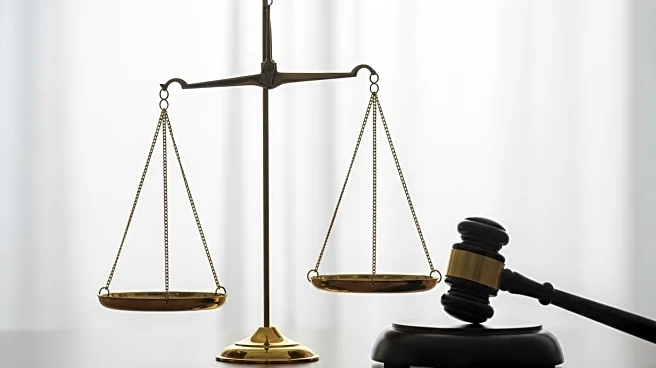What's Happening?
A federal judge in California has given preliminary approval to a $1.5 billion settlement in a copyright class action lawsuit against the artificial intelligence company Anthropic. The lawsuit was filed by a group of authors who accused Anthropic of using copyrighted material without permission to train its AI systems. U.S. District Judge William Alsup described the settlement as fair during a recent hearing. The case is part of a broader wave of legal actions against tech companies like OpenAI, Microsoft, and Meta Platforms, which have been accused of using copyrighted works to develop generative AI technologies. The authors involved in the lawsuit, including Andrea Bartz, Charles Graeber, and Kirk Wallace Johnson, have expressed that this decision is a step towards holding AI companies accountable for copyright infringement.
Why It's Important?
This settlement is significant as it sets a precedent for how copyright laws are applied to the rapidly evolving field of artificial intelligence. The decision underscores the legal responsibilities of AI developers to respect intellectual property rights, potentially influencing how AI companies operate in the future. The outcome of this case could have wide-reaching implications for the tech industry, particularly for companies that rely on large datasets to train AI models. It highlights the growing tension between technological innovation and the protection of creative works, a debate that is likely to intensify as AI technologies become more prevalent.
What's Next?
Judge Alsup will make a final decision on the settlement after notifying affected authors and allowing them to file claims. The outcome of this case could prompt other authors and creators to pursue similar legal actions against AI companies. Additionally, the settlement may lead to increased scrutiny and regulation of AI training practices, potentially resulting in new guidelines or legislation to protect intellectual property rights in the digital age.
Beyond the Headlines
The case raises important ethical questions about the balance between innovation and the rights of creators. As AI technologies continue to advance, there is a growing need for clear legal frameworks that address the use of copyrighted material in AI training. This case could serve as a catalyst for broader discussions on how to ensure that technological progress does not come at the expense of creators' rights.









